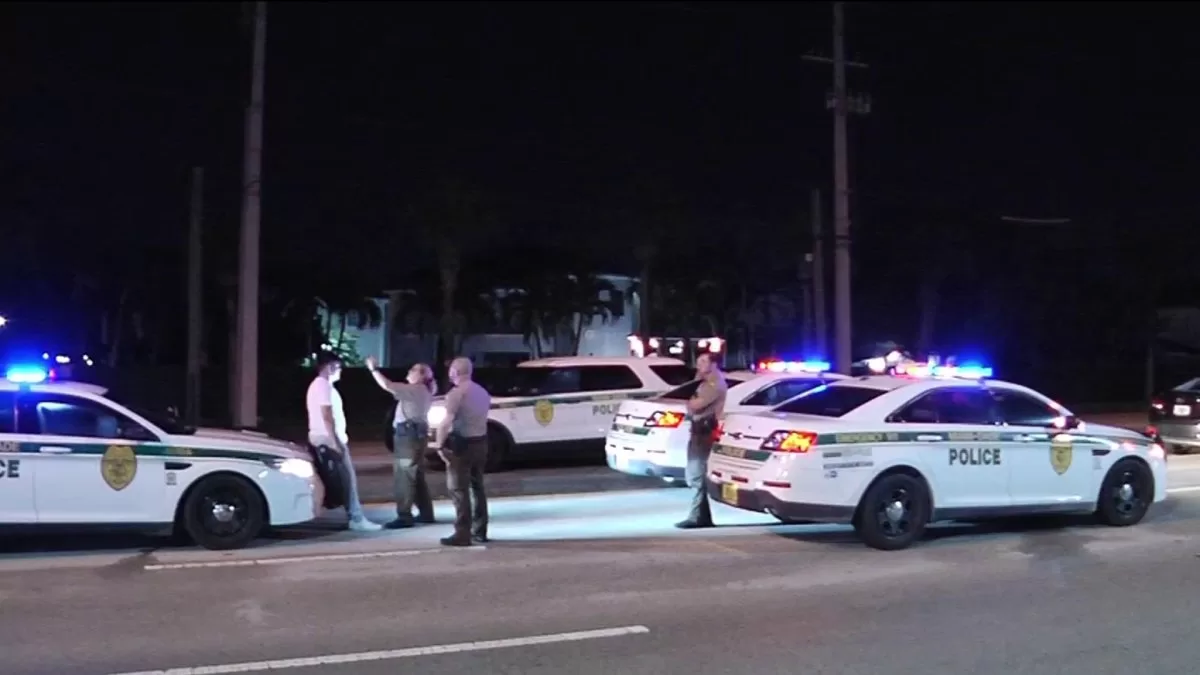January 8, 2023. Brasilia, the capital of Brazil and a city of bureaucrats, dawns more deserted than usual. Seven days have passed since Luiz Inácio Lula da Silva returned to power surrounded by 300,000 followers in a party that ended without incident. As the worst fears have not materialized, there is a general sense of relief. It is Sunday. The new (and old) president visits a city of São Paulo affected by floods, the newly arrived ministers assemble their teams, the main authorities of the republic are on New Year’s vacation, like half the country, and Jair Bolsonaro ruminates his defeat in Florida (USA).
Although the alerts about a Brazilian version of the assault on the Capitol were there, the attack by thousands of Bolsonaristas at the heart of democracy caught almost everyone by surprise. Six months after that infamous day, which is already part of Brazilian history, police, judicial and journalistic investigations allow drawing a clearer image of the attack and some derivatives.
alerts
When Bolsonaro had four days left in power, the internal spy agency (ABIN, for its acronym in Portuguese) delivered a report with a specific alert to the outgoing government and the transitional Cabinet led by Lula. Everyone pay attention because “the red berets” are in Brasilia, he came to say. He was referring to a group of eight soldiers with a past of anti-democratic attitudes who had arrived at the camp that ultra-bolsonaristas set up, after Lula’s victory, in front of the Army headquarters to demand that the military carry out a coup. The document, delivered to a parliamentary committee and revealed by the newspaper Folha de S.Paulo, warned: “It is estimated that they have the capacity, motivation and means to plan, execute or support a violent extremist act.” The fear was that the red berets would attack the investiture ceremony.
For weeks the Bolsonaristas camped out in front of barracks throughout the country had been transmitting an enigmatic message to whoever wanted to listen: they would travel to the capital because something important was going to happen there, without further detail. With Lula inaugurating his third term, invitations to attend “Selma’s party” on Sunday, January 8 in the Plaza de los Tres Poderes, flanked by Congress, the Presidency and the Supreme Court, began to circulate happily among Bolsonaro Internet users. They used slogans such as “freedom is not won, it is conquered” and the term Selma replaced Jungle!, a classic battle cry of the Brazilian military, struggling in the Amazon.
Join EL PAÍS to follow all the news and read without limits.
subscribe
And there was a demonstration called by the campers. They would march to the institutional heart of Brazil – eight kilometers – so on Friday ten government agencies debated the deployment of security. But on Sunday only 400 officers were deployed. The thousands of Bolsonaristas, with Canarinha shirts and wrapped in Brazilian flags, were escorted by the police to the last security barrier, some uniformed became selfies with them… In an instant, the peaceful march was a full-blown assault.
The invaders
Proof of the severity of the judges, 211 of the 1,400 detainees for the assault are still in preventive detention half a year later, although Brazil is an extremely guarantee-oriented country. Those arrested are a motley crew of people who, falsely convinced that a conspiracy of judges and the media stole the election from Bolsonaro, showed up in the capital one day to do something about it while truckers blocked roads. Among the detainees, men over 45 stand out, the most typical profile of the Bolsonaro voter, but there are also retirees with grandchildren, cleaners, nutritionists, truckers, 23 military police officers and some influenced by networks… People who inhabit a parallel universe and that they never imagined ending up behind bars.

The Supreme Court has already indicted some 1,300, almost all of them. He did it in virtual sessions without the live deliberations between the magistrates that were the norm until the pandemic. Those detained in full invasion are accused of violent abolition of the democratic State, belonging to an armed criminal gang, coup d’état and damage and deterioration of public property, crimes that can add sentences of 30 years; Those apprehended in the camp face a sentence for incitement, up to four years. And an agent is prosecuted for omission of duty. The judges have analyzed the complaints in blocks of 250 detainees.
The plan is to judge them in groups of 30 in the coming months in Brasilia. The police are also looking for the financiers and instigators, the latter accusation weighing on Bolsonaro, who has been disabled until 2030, but not for the assault, but for misinforming and delegitimizing the electoral process. Congress also created a commission of investigation, which was attended this week by Bolsonaro’s private secretary, Lieutenant Colonel Mauro Cid, who the police found on his cell phone coup conversations with other soldiers. He kept silent so as not to incriminate himself; he is imprisoned for falsifying vaccination records.

The complicities
Former President Bolsonaro has been questioned by the police because the Supreme Court accuses him of encouraging the assault, but for the moment that case has not translated into any other measure for him. One of the key characters in the plot is the police commissioner Anderson Torres, who was the far-right’s Minister of Justice until December 31. The following day, January 1, while Lula assumed the presidency, Torres became the capital’s Secretary of Public Security (thus, politically responsible for the security forces). The first thing he did in office was take a family vacation. Where? In Florida, where Bolsonaro was. It is not known if they were found. On his return home, he was jailed after investigators found a draft state of emergency decree in his house to invalidate Lula’s victory.
The image of the attitude and actions of the military in those critical hours is still very hazy. After the assault, President Lula relieved the head of the Army and also the only military minister of his Government. The Bolsonaristas dreamed that the Armed Forces would block the path to the left in this country that suffered a dictatorship (1964-1985). And, although Bolsonaro is popular with the rank and file and top reserve generals, some high-ranking officers have criticized the far-right former president’s attitudes and policies.

The day D
The Minister of Justice, Flavio Dino, a former judge and governor, was one of the few authorities that had stayed in Brasilia that Sunday in the southern summer. He was pending the manifestation of the ultras. Both the governor of the Federal District, Ibaneis Rocha (an ally of Bolsonaro), and the Minister of Defense, José Mucio, (of Lula), told him on January 8 that the protest was taking place calmly, so the minister went to eat in family.
Soon, the shock: thousands of Bolsonaristas have just jumped the containment barrier. Immediately, Dino goes to the office, a glass-enclosed room two steps from the epicenter of the violence that shook the foundations of democracy. Although he was on alert, when thousands of people invaded Congress – in the aerial images they are a fast flow of green and yellow ants – he was stunned, like his compatriots: “I lived it perplexed and indignant, because there was a very police deployment small, different from what the documentation said”, he told BBC Brazil. At first, he felt enormously impotent because in Brazil the police that are deployed in the streets depend on the governors and he was unable to communicate with Governor Rocha, removed from office by Lula in full frenzy. Quickly, Minister Dino got down to work, “making decisions that are not legally my responsibility.” The mobilization of hundreds of agents neutralized the ultra attack.

One of the policemen who confronted the Bolsonaristas for three hours has recounted that preventing them from invading the most sacred place of popular sovereignty, the plenary session of the Chamber of Deputies, “was a matter of honor.” He adds, in a documentary, that the ultras said that the military was going to come to their aid. And he recalls the most shocking moment: “I was shocked to see people on their knees, praying” while other extremists destroyed windows, furniture and works of art.
Subscribe here to the newsletter THE COUNTRY America and receive all the current news in the region.
Subscribe to continue reading
Read without limits




